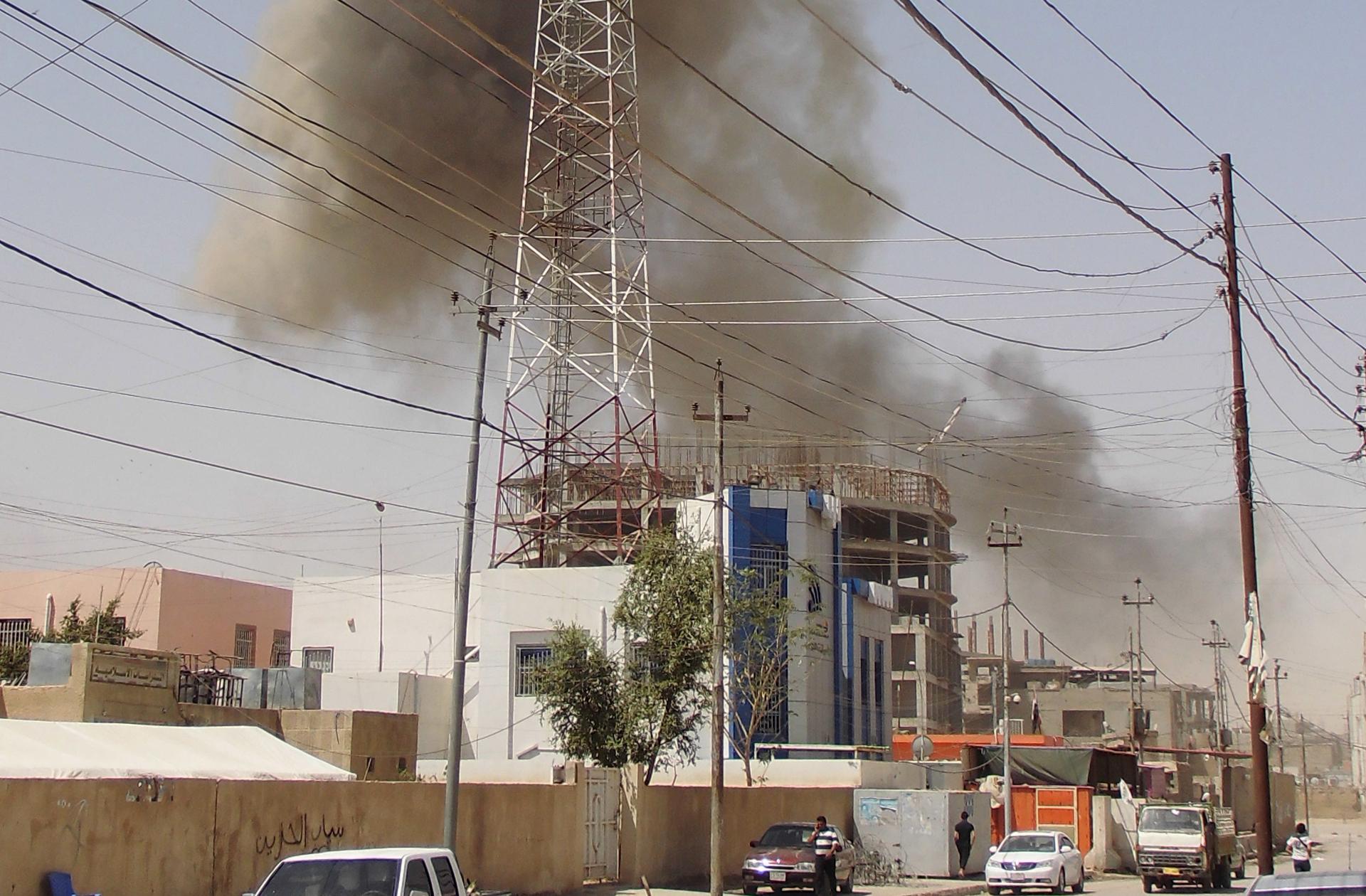Smoke rises after a bomb attack in the city of Ramadi, May 15, 2015.
When ISIS fighters took Ramadi in May, many blamed the Iraqi army for running away — but analyst Michael Knights says it's more complicated than that.
"Iraqi troops were taken by surprise in Ramadi," he says. "Particularly by ISIS using massive suicide truck bombs against them." 30 trucks packed with explosives, ten with the power of the truck bomb used in the 1995 Oklahoma City bombing, were employed by ISIS to take control over Ramadi in mid-May.
"The Iraqi army often goes into battle unprepared, with very little intelligence, with very little logistical preparation, and it maximizes the chance of a defeat," says Knights, who travels frequently to Iraq and has written about the country's security and politics. He says statements by US officials about the Iraqi army's poor performance at Ramadi mask an important truth. "The Iraqi Army is willing to fight," Knights says. "It has good troops who want to be led by good officers," he says, "but increasingly in recent years, they've found that their officers were either political cronies who hardly turned up for duty, or corrupt officers who just wanted to skim payments and bribes off of the system."
Knights believes that the Iraqi army is already taking steps to improve its performance.
"We have actually been pumping out new Iraqi brigades at quite a good rate," he says. "We actually had three Iraqi army brigades newly graduated by the US, that were heading up toward Ramadi just as ISIS struck at Ramadi. One of the things that has been missed about the Ramadi battle is that we were just mobilizing to do a major effort in Ramadi, and ISIS beat us to the punch."
"But there are other things we're not doing yet that we have to start doing," Knights notes. "One of those would be embedding US and other international special forces with Iraqi units down at the lower levels — brigades and battalions — so that these guys can see some decent leadership close at hand during these attacks."
Knights points to the Kurdish Peshmerga forces who are putting up a strong and coordinated defense against ISIS in the Kurdish Autonomous Region with the help of anti-tank weapons from Germany and air support from the US-led coalition.
"In March," Knights observes, "ISIS tried to throw 21 suicide truck bombs at the Kurds … and they were taken out before they could reach the Kurdish front lines." That's the sort of organization that Iraq's army could benefit from in its push to reclaim Ramadi and territory held by ISIS in Anbar Province.
"We've used that formula in Kurdistan," Knights concludes, "and as a result ISIS has gained hardly any ground now for over six months, and in fact have been pushed back all across the Kurdish-ISIS front line."
We want to hear your feedback so we can keep improving our website, theworld.org. Please fill out this quick survey and let us know your thoughts (your answers will be anonymous). Thanks for your time!
